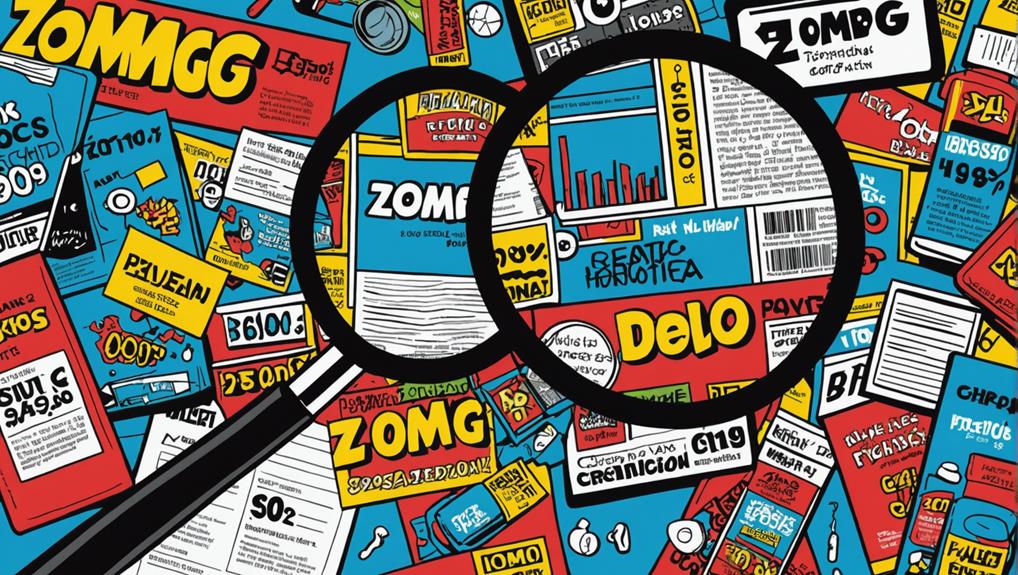Empower student success with the Metacognition Cycle, a roadmap to enhanced self-evaluation and critical thinking. This structured framework guides through task evaluation, strengths assessment, strategic planning, and active implementation, fostering metacognitive awareness essential for academic achievement. By evaluating tasks thoroughly, students gain clarity and focus, ensuring efficient completion while boosting motivation and ownership. Leveraging strengths and weaknesses leads to improved problem-solving and communication skills, aiding continuous improvement. Strategic planning, goal setting, and effective resource utilization pave the way for success, with active implementation translating plans into achievement. The transformative power of the Metacognition Cycle awaits your exploration into student excellence.
Key Takeaways
- Metacognition Cycle enhances self-evaluation and critical thinking skills.
- Task assessment guides students, ensures clarity, and maintains focus.
- Leveraging strengths and weaknesses leads to continuous improvement.
- Strategic planning involves setting goals, breaking tasks, and using resources effectively.
- Active implementation of strategies translates plans into action for student success.
Understanding the Metacognition Cycle

Understanding the Metacognition Cycle involves grasping the structured framework designed to enhance student engagement, self-evaluation, and critical thinking throughout task completion in the classroom.
This cycle comprises five key stages:
- Task evaluation
- Evaluation of strengths and weaknesses
- Planning the approach
- Applying strategies
- Reflecting on the process.
By evaluating tasks thoroughly, students gain clarity on the requirements and set a clear direction. Evaluating strengths and weaknesses enables students to optimize performance and set personal goals. Planning the approach fosters creativity and decision-making skills, while applying strategies involves active engagement and flexibility. Reflecting on the experience promotes deeper understanding and metacognitive awareness.
This cycle offers a detailed roadmap for students to navigate successfully through various tasks and projects.
Importance of Task Assessment

Evaluating tasks plays a pivotal role in guiding students towards successful completion and understanding of academic assignments. When students assess tasks effectively, they set themselves up for accomplishment and comprehension.
Here are five key reasons why task assessment is essential:
- Clarity: Understanding task requirements is essential for success.
- Focus: Clear direction at the start helps maintain focus throughout.
- Efficiency: Knowing what is expected enables students to work efficiently.
- Ownership: Students take ownership of their learning when they comprehend tasks.
- Motivation: Clear task assessment fosters motivation to tackle assignments effectively.
Leveraging Strengths and Weaknesses

In addition, by encouraging students to honestly assess their abilities, educators can help them leverage strengths to excel in tasks. Whether it's exceptional problem-solving skills, creativity, or effective communication, each strength can be a valuable asset in achieving academic goals.
Furthermore, by actively working on weaknesses, students can develop a more well-rounded skill set and improve in areas that may challenge them. Through effective delegation in group tasks and setting personal goals, students can optimize their performance and work towards continuous improvement.
Understanding and capitalizing on strengths while actively managing weaknesses is a winning combination for student success.
Strategic Planning for Success

How can students effectively strategize for success in their academic tasks and projects?
Strategic planning plays an essential role in achieving academic success. Here are five key ways students can plan strategically:
- Set Clear Goals: Establish specific and achievable goals for each task.
- Create a Timeline: Break down tasks into smaller steps and set deadlines for each.
- Utilize Resources: Identify and utilize resources such as textbooks, online tools, and library materials.
- Stay Organized: Keep track of deadlines, notes, and materials to stay on top of tasks.
- Seek Help When Needed: Don't hesitate to ask teachers or peers for clarification or assistance.
Active Implementation of Strategies

The implementation of strategies plays a pivotal role in translating students' plans into action for successful task completion and project outcomes. Active implementation of strategies involves putting plans into motion, utilizing various techniques to achieve desired results.
This stage is where students engage directly with the task, applying their knowledge and skills to make progress. Teachers play an essential role in supervising and guiding students through this phase, ensuring that the strategies are effectively executed. Encouraging flexibility and adaptability in approach empowers students to make informed decisions and adjustments as needed.
Hands-on application of strategies not only enhances learning outcomes but also fosters a deeper understanding of the task at hand. Through active implementation, students develop essential problem-solving skills and critical thinking abilities, setting a strong foundation for success.
The Power of Reflective Practice

Engaging in reflective practice allows individuals to deepen their understanding of their learning experiences and enhance their metacognitive awareness. Reflective practice is a powerful tool that can have a substantial impact on student success by fostering self-awareness and continuous improvement.
Here are five key benefits of incorporating reflective practice into your learning journey:
- Promotes Self-Awareness: Reflecting on experiences helps students understand their strengths, weaknesses, and areas for growth.
- Enhances Learning Outcomes: Encourages students to identify what worked well and what could be improved for future tasks.
- Develops Critical Thinking Skills: Reflection prompts students to analyze their actions and decisions, fostering a deeper understanding of concepts.
- Fosters Goal Setting: Reflective practice empowers students to set meaningful goals based on their reflections, driving progress.
- Encourages Lifelong Learning: By reflecting on experiences, students cultivate a habit of learning from every situation, ensuring continuous growth.
Enhancing Student Learning and Success

By fostering a culture of metacognitive awareness and strategic thinking, educators can greatly enhance student learning and success. When students are equipped with the tools to assess tasks effectively, evaluate their strengths and weaknesses, plan their approach, apply strategies, and reflect on their learning, they are better positioned for academic achievement.
The Metacognition Cycle provides a structured framework for students to navigate through tasks and projects with confidence. Through this process, students not only develop critical thinking skills but also gain a deeper understanding of their own learning processes.
Frequently Asked Questions
How Can Students Maintain Motivation During the Metacognition Cycle?
Students can maintain motivation during the metacognition cycle by setting clear goals, celebrating small victories, fostering a growth mindset, seeking support when needed, connecting tasks to personal interests, and reflecting on progress regularly.
What Role Does Peer Feedback Play in the Metacognition Cycle?
Peer feedback in the Metacognition Cycle fosters collaborative learning. It provides diverse perspectives, enhances self-awareness, and promotes critical thinking. Peer evaluations offer constructive criticism, validate progress, and encourage accountability. Feedback from peers strengthens metacognitive skills and improves overall task performance.
Are There Specific Strategies for Overcoming Common Obstacles in Task Assessment?
To overcome common obstacles in task assessment, students can utilize strategies such as seeking clarification from teachers, engaging in peer discussions, utilizing concept mapping techniques, and actively participating in group brainstorming sessions. These approaches enhance clarity and understanding of task requirements.
How Can Teachers Adapt the Metacognition Cycle for Different Learning Styles?
Just as a skilled musician adjusts their technique for diverse instruments, teachers can tailor the Metacognition Cycle to cater to various learning styles. Utilizing differentiated instructional strategies guarantees all students benefit from metacognitive practices.
What Resources Are Available to Support Students in Self-Reflection During the Cycle?
Various resources support students in self-reflection during the Metacognition Cycle. These include reflective journals, guided prompts, peer feedback sessions, and self-assessment rubrics. These tools enhance students' ability to evaluate their learning experiences and promote metacognitive awareness.
Conclusion
To sum up, the Metacognition Cycle offers a structured approach to enhancing student success by promoting critical thinking, self-assessment, and engagement.
By guiding students through evaluating tasks, leveraging strengths, strategic planning, active implementation of strategies, and reflective practice, this cycle serves as a valuable framework for academic growth and achievement.
So, why not empower yourself with the tools needed to reveal your full potential and achieve your academic goals?










